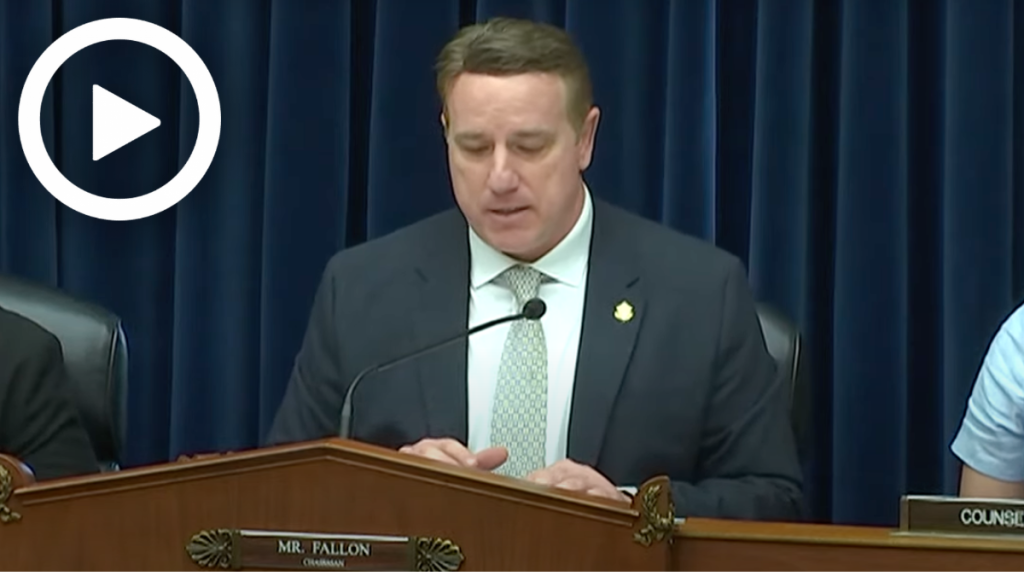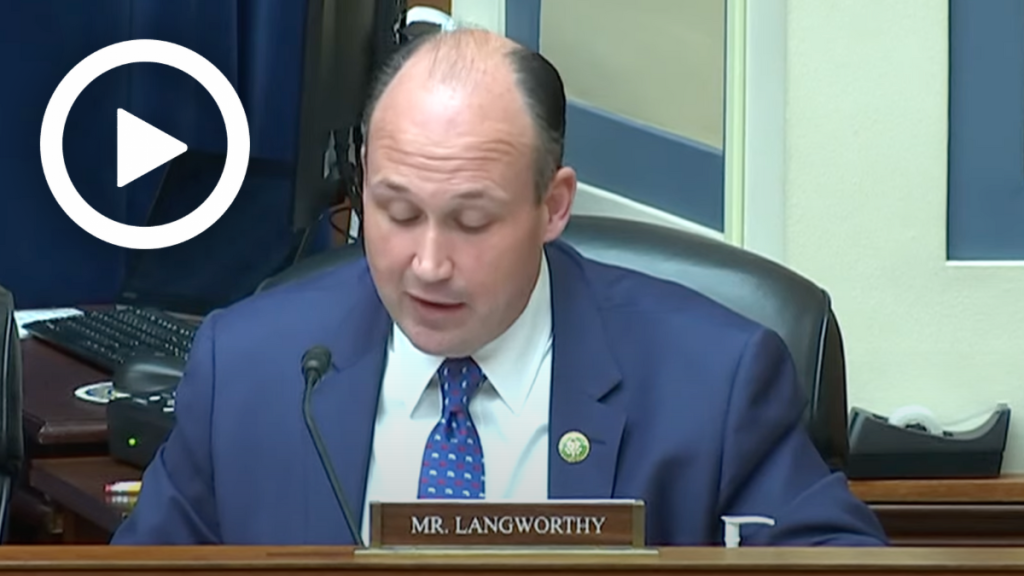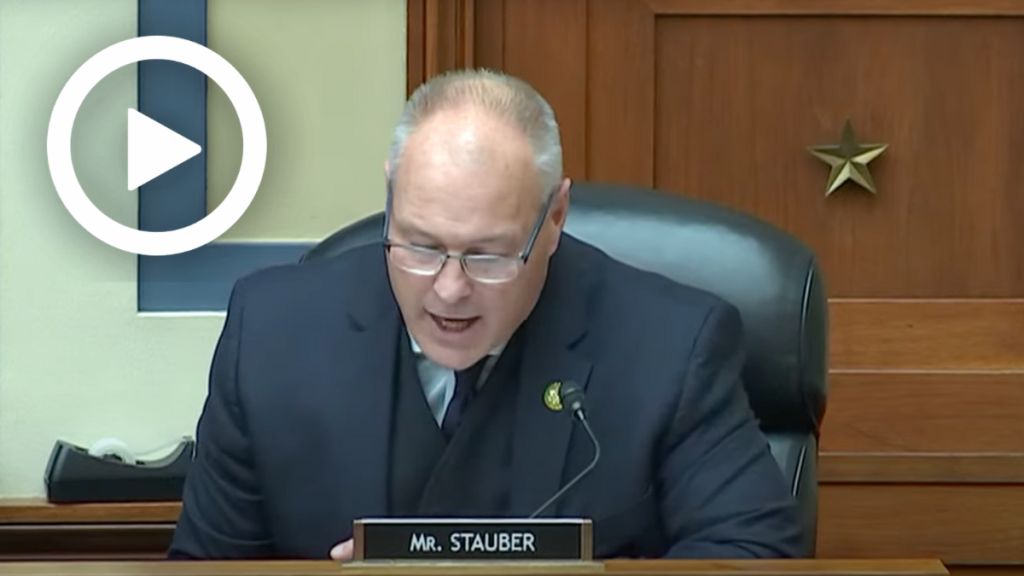Hearing Wrap Up: “Reliance on Non-Allied Foreign Sources for Critical Minerals is Neither Sustainable Nor Secure”
WASHINGTON—The Subcommittee on Economic Growth, Energy Policy, and Regulatory Affairs held a hearing titled “Digging Deeper: Ensuring Safety and Security in the Critical Mineral Supply Chain” to discuss American reliance on critical minerals for building important materials for medicine, everyday electronics, and military defense, and to examine ways to strengthen our national security and protect against supply chain crises by increasing domestic production of these minerals and materials.
Key Takeaways:
The United States’ overreliance on other countries for critical minerals, including adversarial nations like Russia and China, has significant consequences for our economy and our national security.
- During her opening testimony, Ms. Munilla, Deputy Assistant Secretary for Multilateral Engagement, Climate and Market Development at the Office of International Affairs at the U.S. Department of Energy (DOE) discussed the Biden Administration’s overreliance on foreign critical minerals. “For the 31 of 50 minerals designated by USGS in its critical minerals list, the U.S. relies on other countries for more than 50 percent of our requirements and rely entirely on foreign sources for more than a dozen of these minerals.”
- She added. “Our reliance on non-allied foreign sources for these materials is neither sustainable nor secure.”
Permitting timelines, delays, and unnecessary litigation can dissuade investment and increase prices of critical minerals.
- U.S.-based mining projects lose over one-third of their value as a result of delays during the permitting process.
Domestic critical mineral extraction and refining is the best answer to worsening global supply shortages.
- Ms. Munilla discussed the Department of Energy’s commitment to protecting our national security and global competitiveness by growing our domestic industries. “With expected demand growth for critical minerals and materials, or CMMs, to increase by 4-6 times over the next three decades, no single country will be able to satisfy global demand. The situation provides both a challenge and an opportunity to grow our domestic industries to help meet the growing market demand, to increase American competitiveness while diversifying supply chains, and to improve labor and environmental standards worldwide while creating technologies that can be deployed domestically.”
Member Highlights:
Subcommittee Chairman Pat Fallon (R-Texas.) warned that China currently dominates the global critical mineral market, leading production in 30 of 50 minerals on the Department of the Interior (DOI)’s list.
Chairman Fallon: “We know that China has a strangle hold on global critical mineral supply chains and it’s responsible for 60 percent of the production, 90 percent of the processing, and 75 percent of the manufacturing.
“The US is currently dependent on these supply chains. We just are. Should the United States become involved in a conflict with China and we’re no longer to access these supply chains, how do you think the U.S. would respond?”
Ms. Najieb-Locke: “I think that the national defense stockpile (NDS) is exactly set up for that reason – to make sure that we can respond by releasing materials from our NDS to make sure that the current manufacturing for our weapon systems that are needed in a conflict continue to be accessible. That’s also where our international partners come into play.”
Chairman Fallon: “Do you believe China upholds the same environmental and labor standards for mining as we do hear in the United States?”
Dr. Feldgus: I’m not familiar with China’s environmental labor standards. I’ll just say that the U.S. has among the highest environmental labor standards in the world.”
Rep. Nick Langworthy (R-N.Y.) examined how the permitting process takes seven to ten years in the U.S., while by comparison, the process takes an average of two years in Canada and Australia.
Rep. Langworthy: “Permitting mineral mining currently takes an average of seven to ten years in the United States. What is your agency doing to speed up this process?”
Dr. Feldgus “…We are trying to take the process that our office in Nevada uses and move that nationwide. They have a very good step-by-step process that’s been proven very effective.”
Rep. Langworthy: “Would you agree that increasing domestic mineral production would strengthen national security, create good paying jobs, and decrease mineral costs for various technology and projects?”
Dr. Feldgus: “Absolutely.”
Committee on Natural Resources Subcommittee on Energy and Mineral Resources Chairman Pete Stauber (R-Minn.) discussed how the Biden Administration has done nothing to promote domestic mining. Instead, it has increased our reliance on China.
Rep. Stauber: “Dr. Feldgus, what actions has the Biden Administration taken to promote mining and develop critical mineral supply chains in northern Minnesota?”
Dr. Feldgus: “We recently completed a report from our interagency working group on mining reform…”
Rep. Stauber: “The answer is ZERO. What actions has the Biden Administration taken to promote mining and develop critical mineral supply chains in northern Minnesota? The answer is zero.”
Rep. Stauber: “Quite frankly, this Administration has done nothing to promote domestic mining and has actually taken action to shut down our domestic mining industry and increase our reliance on China.”
“Ms. Najieb-Locke, what would happen to U.S. military readiness if China were to cut off access to critical minerals tomorrow?”
Ms. Najieb-Locke: “Readiness would be endangered but we would nonetheless be able to respond from our stockpiles.”
CLICK HERE to watch the full hearing.


